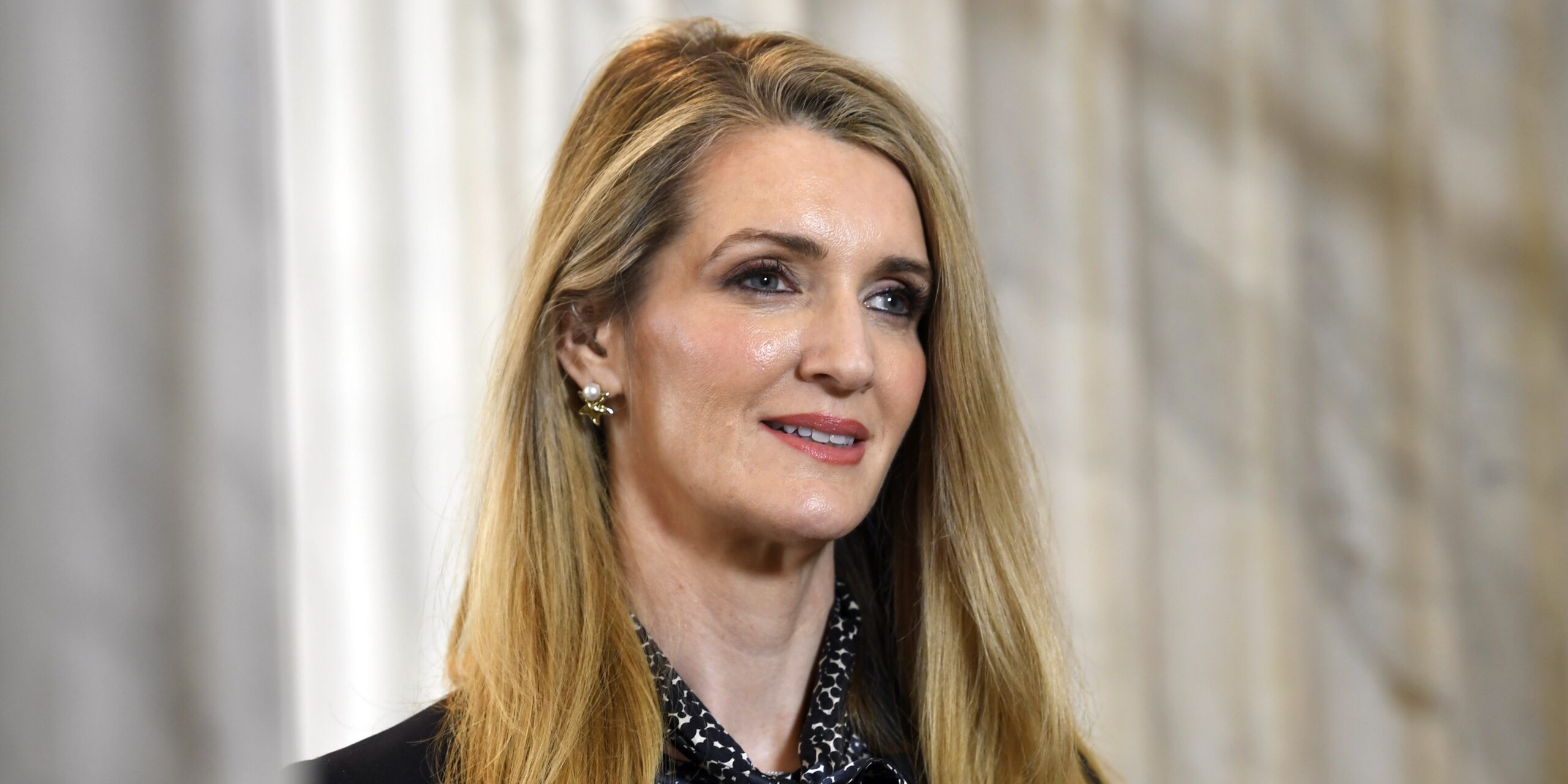Sen. Kelly Loeffler On Liquidating Her Stock Portfolio, Coronavirus Relief

U.S. Sen. Kelly Loeffler and other senators had come under scrutiny for stock transactions perceived to have benefited from insider information about the coronavirus pandemic.
Susan Walsh / Associated Press
U.S. Sen. Kelly Loeffler of Georgia this week announced she would liquidate her managed stock accounts and reinvest that money in mutual funds and exchange-traded funds. She did so, as she explained, not because she had to but because “the issue isn’t worth the distraction that it’s created.”
She and other senators had come under scrutiny for stock transactions perceived to have benefited from insider information about the coronavirus pandemic.
Loeffler has repeatedly denied that she profited in any way and maintains she and her husband, Jeffrey Sprecher, who is CEO of Intercontinental Exchange, the company that owns the New York Stock Exchange, have no involvement in their portfolio transactions as they are managed by third-party advisers.
Loeffler spoke to WABE further about her decision and about the latest on the coronavirus relief and response. She said relief checks for those with direct deposit set up with the IRS may start receiving the money as soon as today (April 10).
Emma Hurt: Is doing something like this with your stock portfolio something you considered before you took office in January?
Kelly Loeffler: It’s actually not. When I looked at what was required under Senate Ethics, we decided from the start that we were going to over-comply. And as we looked at our financial position, we realized that we already did by having no involvement in our stock portfolio. And that was the result of more than two decades in the financial services world where we had long separated ourselves from those trading decisions.
EH: Why did you choose to reinvest in mutual funds and exchange-traded funds, rather than maybe a blind trust?
KL: The portfolio that we have is very broad and diverse. The reportable accounts are a very small fraction of our net holdings. And we just decided that would be easier. Those are passively managed — passive means that there’s no input even by our investment managers into the holdings of [those funds].
EH: You’ve maintained that the stock transactions that have come under scrutiny are made by third-party investment advisers, without any involvement from you or your husband. But for Georgians who maybe don’t have investment advisers, who can’t maybe relate to these dynamics, or frankly, those who might still not believe you, how you plan to convince them going forward?
KL: My focus is on serving all Georgians, and that’s been my sole focus since I got to Washington. I did not come here to profit. I’ve never even thought about profiting. In fact, I donate my Senate pay to charities around our state. I stepped out of the private sector to serve and give back to a state that’s given me so much. This is the result of a baseless news, fake news attack. Really, to be honest, this originated from a story that never got fact-checked. The dates were cherry-picked. And if you looked at our portfolio closely, you’d see that it’s a mix of buys and sells and was not positioned for a market sell off at all. This transparency was being abused for political gain. I completely believe in transparency. Unfortunately, we are in an election year where anything that I do is going to be attacked.
EH: A question at the top of many people’s minds: What’s your knowledge of the timelines in which Americans can expect to receive business loans and direct release payments right now?
KL: It’s not just enough to pass this [federal relief] bill; it’s got to get into Americans’ hands quickly. And it sounds like the latest expectation is that those economic impact checks will be starting to be delivered as early as today (April 10). Over the next coming weeks, Americans should start to realize the benefit of these $1,200 checks per adult, $500 per child.
And then the Small Business Administration loans, you know, over $100 billion has already been given out. I’m working hard to pass more relief because this has been taken up at a rate of about $3.5 billion per hour. So we need to get more relief into the hands of small businesses.
The applications are being approved, the funding should be forthcoming quickly. The amount that the Small Business Administration has approved is already twice the volume that they approved all of last year. They did that in one week. So I expect in the next week, that really starts flowing, and it will enable employees to stay employed and those businesses to open up as soon as we can get our economy going again.
EH: One sector of the Georgia economy, specifically the largest industry in our state, agriculture has taken a major hit right now. What steps are you considering to help that sector in this time?
KL: Well, there’s a lot of steps I’m working on for our farmers. Agriculture is the No. 1 industry in Georgia. And right now, we’re in the midst of beginning planting for cotton. Not only have farmers been impacted by trade, and we’re waiting on China to fulfill the phase one trade deal. But, you know, we have this supply/demand challenge as fruit and vegetable farmers bring in their spring harvest, blueberries, lettuces. It’s important that we get the aid flowing, the billions of dollars allocated to farmers under this act.








